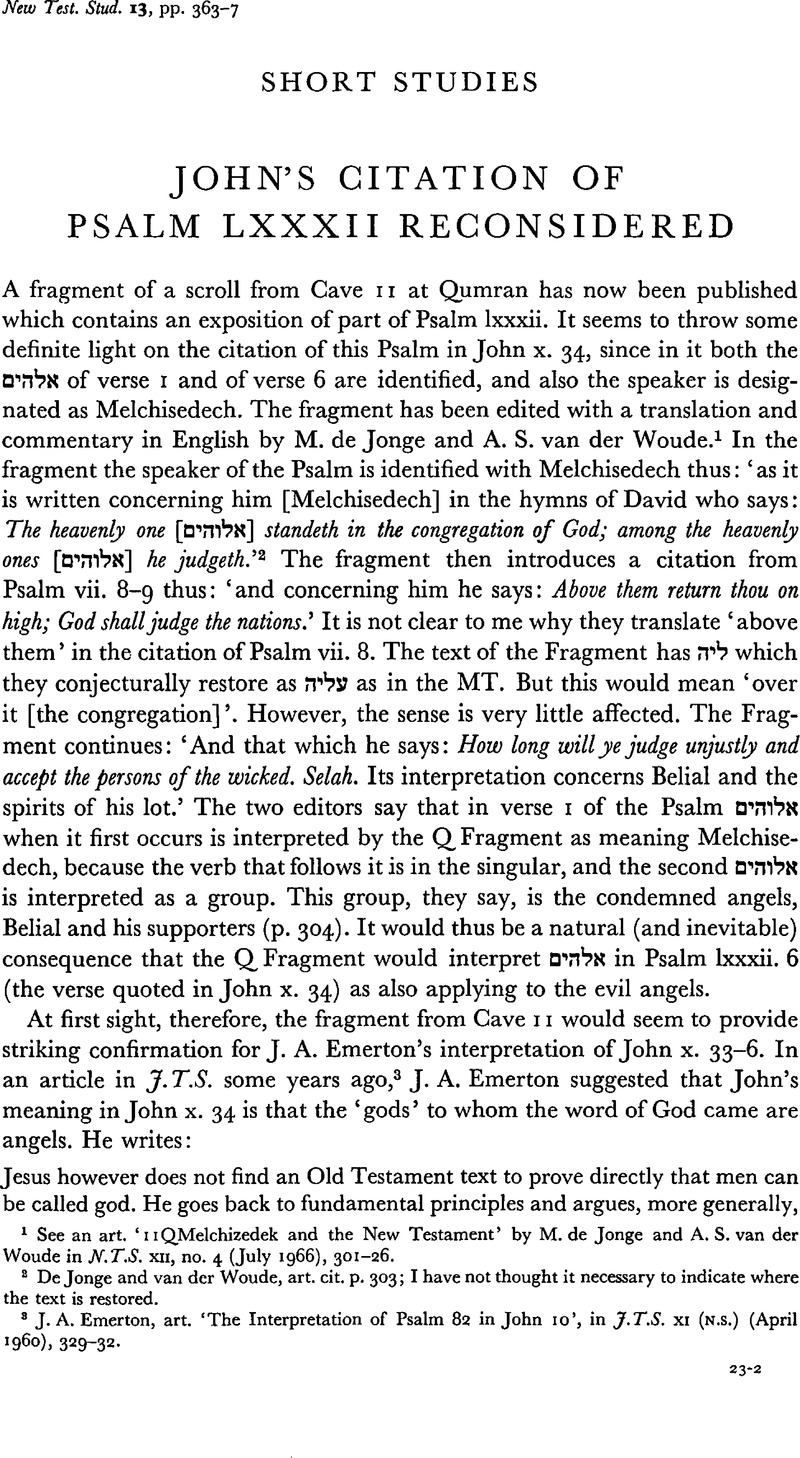Published online by Cambridge University Press: 05 February 2009

page 363 note 1 See an art. ‘II QMelchizedek and the New Testament’ by de Jonge, M. and van der, A. S. Woude in N.T.S. XII, no. 4 (07 1966), 301–26.Google Scholar
page 363 note 2 De Jonge and van der Woude, art. cit. p. 303; I have not thought it necessary to indicate where the text is restored.
page 363 note 3 Emerton, J. A., art. ‘The Interpretation of Psalm 82 in John 10’, in J.T.S. XI (N.S.) (04 1960), 329–32.Google Scholar
page 364 note 1 Emerton, J. A., art. ‘Melchizedek and the Gods. Fresh Evidence for the Jewish Background of John x. 34–36’, in J.T.S. XVII (N.S.) (10 1966), 399–401.Google Scholar
page 364 note 2 Dr Emerton admits the force of this verse; see his first article, p. 332.Google Scholar
page 364 note 3 Hanson, A. T., art. ‘John's Citation of Psalm 82’, in N.T.S. XI (1965), 158–62.Google Scholar
page 365 note 1 The Babylonian Talmud, ed. Epstein, I., Tractate Berakoth, ed. Simon, Maurice (London, 1948), p. 24.Google Scholar
page 365 note 2 Wm. Braude, G., ed. and tr., The Midrash on the Psalms (New Haven, U.S., 1959), II, 59–60.Google Scholar
page 366 note 1 ‘Tractate ‘Abodah Zarah’, ed. Mishcon, A. and Cohen, A. in The Babylonian Talmud (London, 1955), PP. 19–21.Google Scholar
page 366 note 2 ‘Tractate Rosh Hashanah’ in The Babylonian Talmud, ed. Simon, Maurice (London, 1938), p. 146.Google Scholar
page 367 note 1 Except that it substitutes ![]() for
for ![]() .
.
page 367 note 2 Midrash on the Psalms, vol. 1, p. 107.
page 367 note 3 Dodd, C. H., Historical Tradition in the Fourth Gospel (Cambridge, 1963), p. 91.CrossRefGoogle Scholar
page 367 note 4 Thus H. J. Holtzmann's explanation of this phrase is hardly adequate; he agrees that ή γραφή in verse 35 must refer to the Psalm quoted, but he thinks it indicates the phrase ‘You are gods’ and suggests that it underlines the permanence (Verbleiben) of this utterance. But in fact the Psalm quoted does not bear this out; far from continuing as gods, they are to the like men. We need a scripture that points towards the eschatological future. (See Holtzmann, H. J., Evangelium, Briefe, and Offenbarung des Johannes, Tubingen, 1918.)Google Scholar